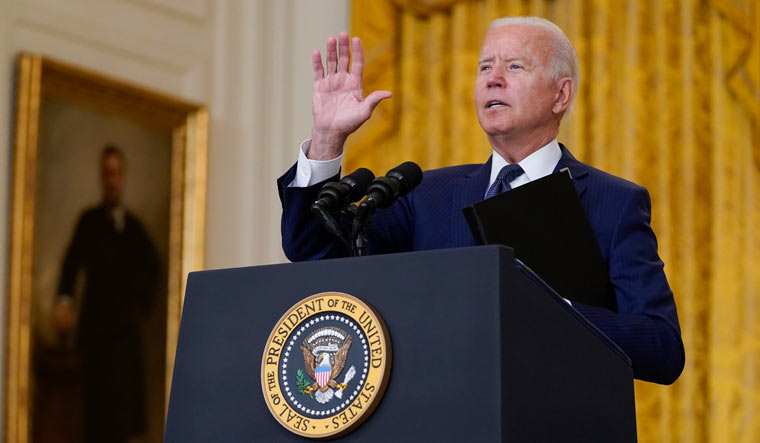A few days before the proposed high-profile Quad meeting between the United States, Australia, India and Japan, the US, Britain and Australia announced a new trilateral security alliance for the Indo-Pacific to "protect their shared interests and allow for greater sharing of defence capabilities". One of the stated intents of the 'AUKUS' grouping will be to help Australia acquire nuclear-powered submarines, and push back against China's growing influence over the strategically vital region. "We undertake this effort as part of a larger constellation of steps, including stronger bilateral partnerships with our traditional security partners in Asia — Japan, South Korea, Thailand, the Philippines — and also stronger engagement with new partners like India, Vietnam, and new formations like the Quad," the White House said in a statement.
This sudden announcement has left a lot of questions on everybody's lips. The first and foremost is the open embarrassment faced by France. The new alliance, which will fast-track nuclear submarine development for Australia, nullifies the latter's pre-existing deal with France—Australia has now dropped French state-owned Naval Group, personally backed by President Macron and with big financial implications. The submarine contract was worth $36.5 billion. France, in a strongly worded statement, said the new deal was "contrary to the letter and the spirit of the cooperation that prevailed between France and Australia". Former French ambassador to the US Gerard Araud tweeted: "The world is a jungle. France has just been reminded this bitter truth by the way the US and the UK have stabbed her in the back in Australia."
The world is a jungle. France has just been reminded this bitter truth by the way the US and the UK have stabbed her in the back in Australia. C’est la vie.
— Gérard Araud (@GerardAraud) September 15, 2021
There is also the added insult to injury that the EU was set to formally announce tomorrow its Indo-Pacific strategy, to play a role in security and defence. This leaves questions over Biden's 'blow hot-and-cold' policy vis-a-vis the European Union, which—contrary to US protestations—is clearly being relegated an ancillary role in the Biden foreign policy playbook.
I must confess I am perplexed. Everything about today’s announcement seems designed to rile continental Europeans. The whiff of “English-speaking peoples”, the coincidence to the day with important, strategic announcements in Brussels, the direct hit on French industrial base…
— Bruno Maçães (@MacaesBruno) September 16, 2021
The next concern obviously is for countries like India, who are part of the Quad grouping often referred to as Asia's NATO. Does this deal mean the US is pushing Quad to the backburner, as a lot of their stated objectives coincide? As Tanvi Madan of Brookings Institute put it, there are no reasons for India to be worried, as the new grouping pulls UK—another major global power—into the Indo-Pacific Cold War; the AUKUS would complement Quad, and further push France closer to India.
1/ As India wakes up to news of AUKUS, here's why it shouldn't be displeased w the devp:
— Tanvi Madan (@tanvi_madan) September 16, 2021
- reinforces network ensuring fav balance of power in Asia
- way to keep UK engaged in IndoPac security
- potential to socialize UK more to China challenge
- fits w/ India's own UK engagement
The real loser from AUKUS formation could be the 'Five Eyes' grouping, the post-World War 2 intelligence alliance comprising Australia, Canada, New Zealand, the UK and the US, which Edward Snowden once described as a “supra-national intelligence organisation”. They have cooperated to share information ranging from telephone calls to emails and technology. In Canada, amid heated election campaigns, opposition politicians slammed the Trudeau administration for pulling Canada out of such crucial security groups.
China is likely to be enraged by the developments. Only six countries in the world, America, Britain, China, France, India and Russia, currently operate nuclear-powered submarines. Now, Australia will take a place in the list, in a region where China has been desperately trying to get a toehold. Australia and China have had a progressively deteriorating relationship in the past years.
On a macro scale, this looks to be the start of a complete shift in foreign policy from the US, moving away from Europe and Russia, and looking to China as the biggest competitor of the coming era. The evolving situation in the Indo-Pacific region in the wake of China's increasing military muscle-flexing has become a major talking point among leading global powers. The Quad and the AUKUS could be the warning shots across the bow to a coming realignment.




